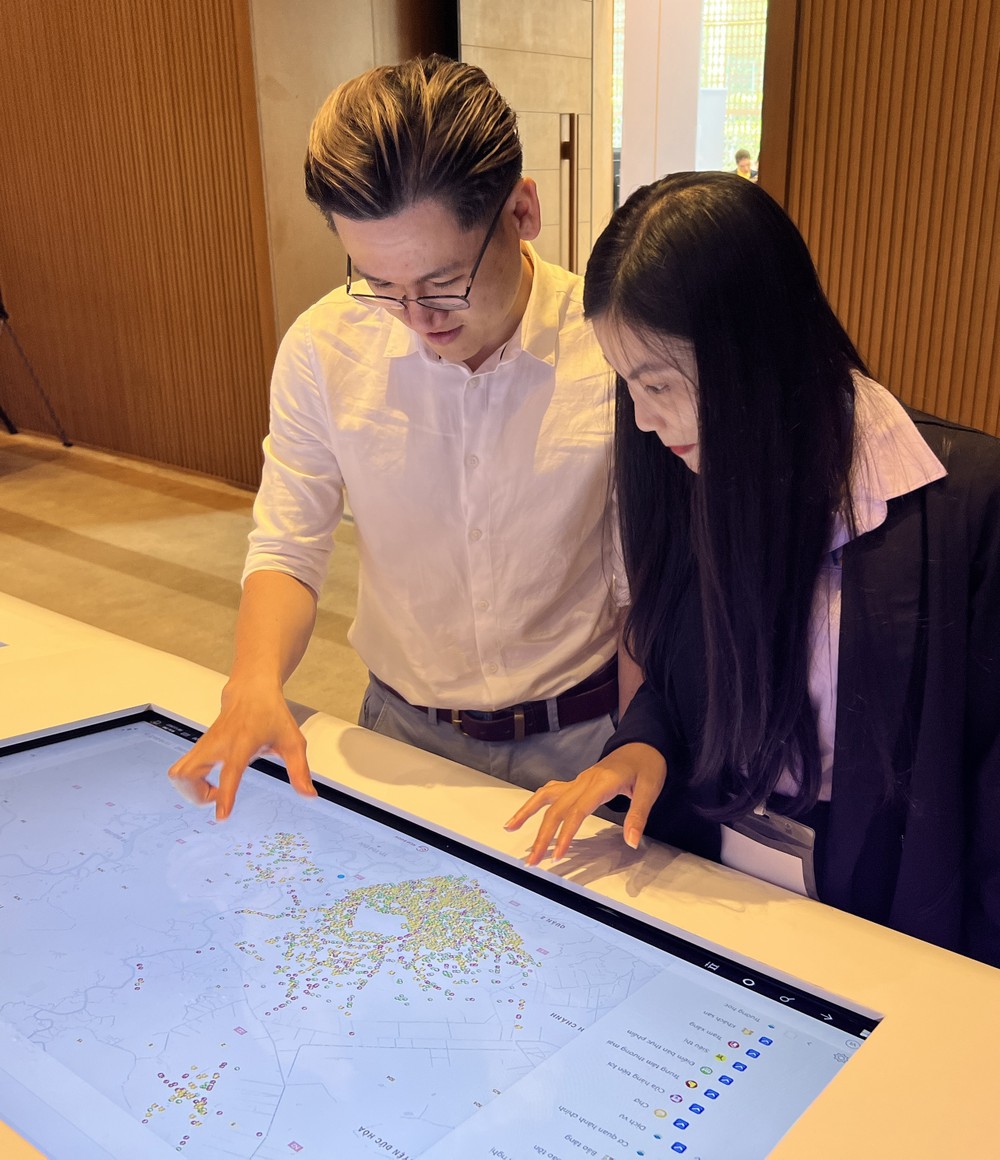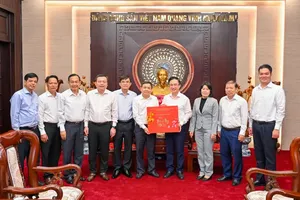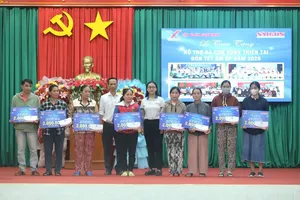
Ho Chi Minh City has implemented many contents of the digital transformation program such as issuing a set of digital transformation assessment indicators, data management strategy as well as models for the project to deploy residential data and electronic authentication. The southern metropolis has initially achieved fruitful results for its people-oriented digital transformation process.
HCMC builds the best infrastructure
Any city residents come to work at headquarters of people's committees in districts, even the People's Committee of Ho Chi Minh City, they only need a smartmobile phone containing a photo or an e-mail instead of other types of papers like identification documents before, their social status will be identified.
That is a part of the results of digital transformation - building a digital government that the city has been implementing, bringing convenience and time-saving opportunities. During the process of building digital government, all state agencies in the city have so far used official emails and deployed online video conferencing, document and electronic document management systems and work schedules.
The city also completed upgrading the system to help connect and seamlessly connect electronic documents of over 1,500 agencies and organizations, creating a digital document warehouse throughout the city.
Director of Ho Chi Minh City Department of Information and Communications Lam Dinh Thang said that the city has restructured the professional process of handling administrative procedures in the digital environment and currently, there have been 740 online public services. Moreover, the city has launched the Institutional Implementation Map at https://bandotheche. hochiminhcity.gov.vn which publicizes the transparency and progress of services for city dwellers. The Switchboard 1022 was set up to connect 700 agencies which are responsible for handling 18 fields.
To achieve the above results, in addition to a thorough understanding of the digital transformation policy, the city has built infrastructure construction early. The city upgraded data centers and cloud computing infrastructure while maintaining capacity and resources with more than 1,000 servers for the city's electronic government information system as well as building a specialized network system linking 800 connection points citywide.
The city also collected nearly 470,000 digital signatures of people and 11,777 digital signatures of officials and civil servants as well as 1,950 digital signatures to service agencies using online public services contributing to smoothly and safely in digital transformation activities.
HCMC connects digital government with digital citizens
In 2024, Ho Chi Minh City identifies one of the goals as digital transformation for effective urban governance based on data, real time and forecasting and promotion of economic growth which are oriented towards a digital economy and green economy for improving city inhabitants’ living quality and working environment as well as increasing people's participation in city operations.
Accordingly, the city determines that by 2025, the city government will put its activities to digital platforms and all qualified public services will be carried out online so that people and businesses will do it online and only provide information once.
According to the Department of Information and Communications of Ho Chi Minh City, to effectively implement the above goals, the city continues to implement policies to support and develop data center infrastructure and cloud computing infrastructure, telecommunications network infrastructure, and broadband internet which will cover every neighborhood and hamlets. Additionally, the city will complete the city data integration and sharing platform and promote 5G applications and services after the Ministry of Information and Communications approves.
Internet of Things (IoT) services and AI application platforms for the development of digital government, digital economy, and digital society will also be enhanced and expanded. In 2024, the city will also accelerate the launch of new platforms to improve the quality of public services, while effectively applying data in the city's enforcement administration with a focus on the land information system and construction licensing in particular because these are two areas with a large and complex number of documents, affecting people's needs the most. At the same time, a digitalization platform and storing city electronic documents will be deployed to enrich and effectively exploit the city's data warehouse.
In 2024, digital transformation to build a digital government is oriented to people’s sake so the city will continue to promote digitalization and restructuring of business processes, shortening processing time in the digital environment to improve the quality and quantity of paperless administrative procedures. To increase citizen participation in interactions with digital government as well as build digital citizenship, this year the city will launch a citizen mobile application so that all citizens can communicate and access information about the government more effectively and conveniently, said Mr. Lam Dinh Thang.
According to data published by the Ministry of Information and Communications, the contribution of the digital economy to the total product in Ho Chi Minh City (GRDP) in 2023 was estimated to reach 18.66 percent. The city continuously implements activities to promote digital transformation and non-cash payments in educational and medical facilities. In order for digital transformation to be associated with the promotion of the digital economy, Ho Chi Minh City focuses on supporting and encouraging digital technology businesses to develop, creating motivation to promote businesses in economic sectors to implement digital transformation and new production and business models based on digital technology platforms.
























